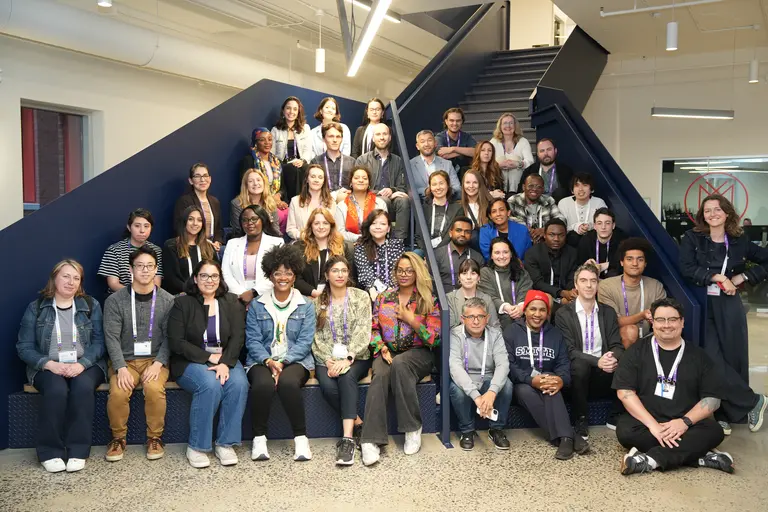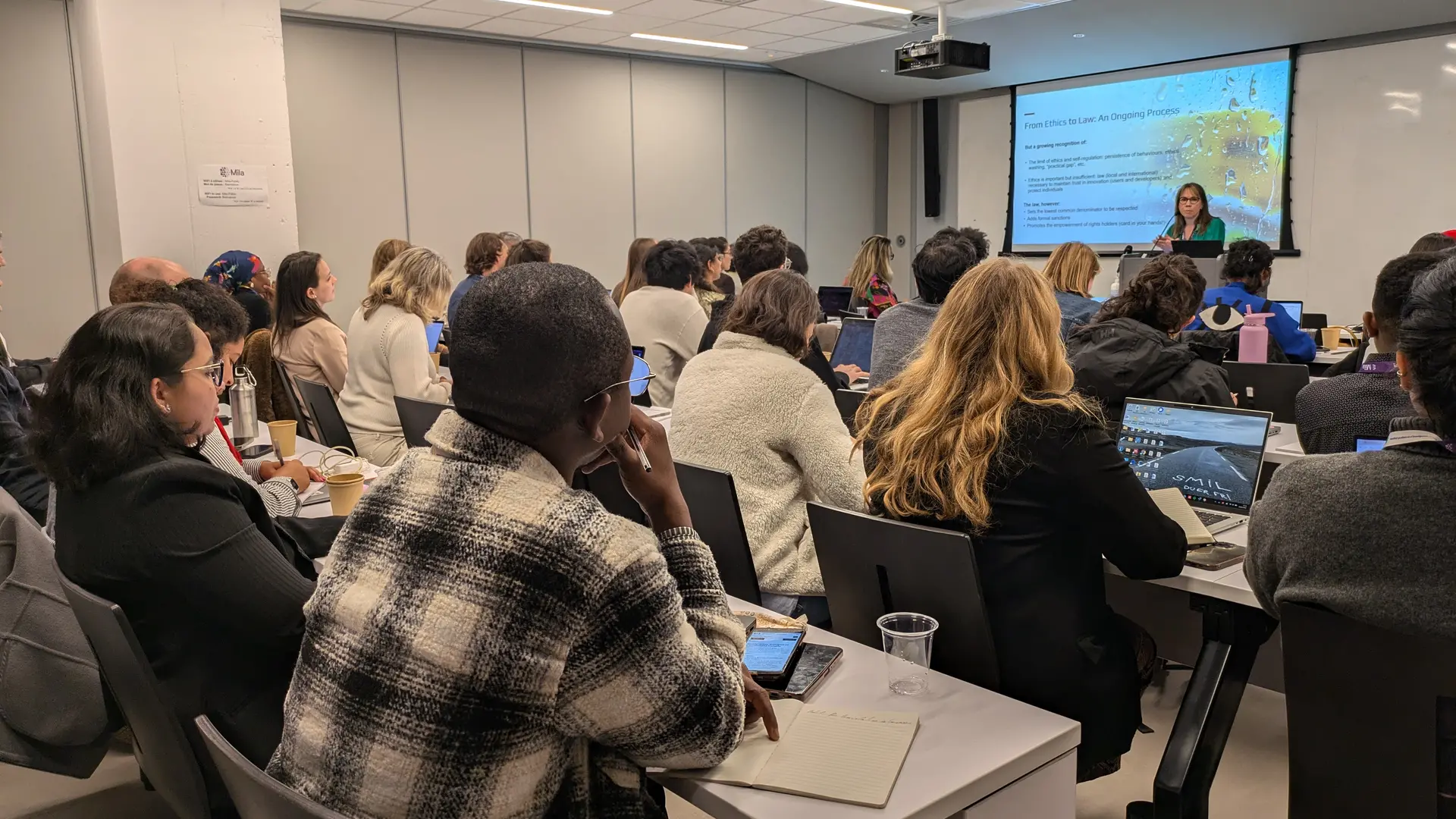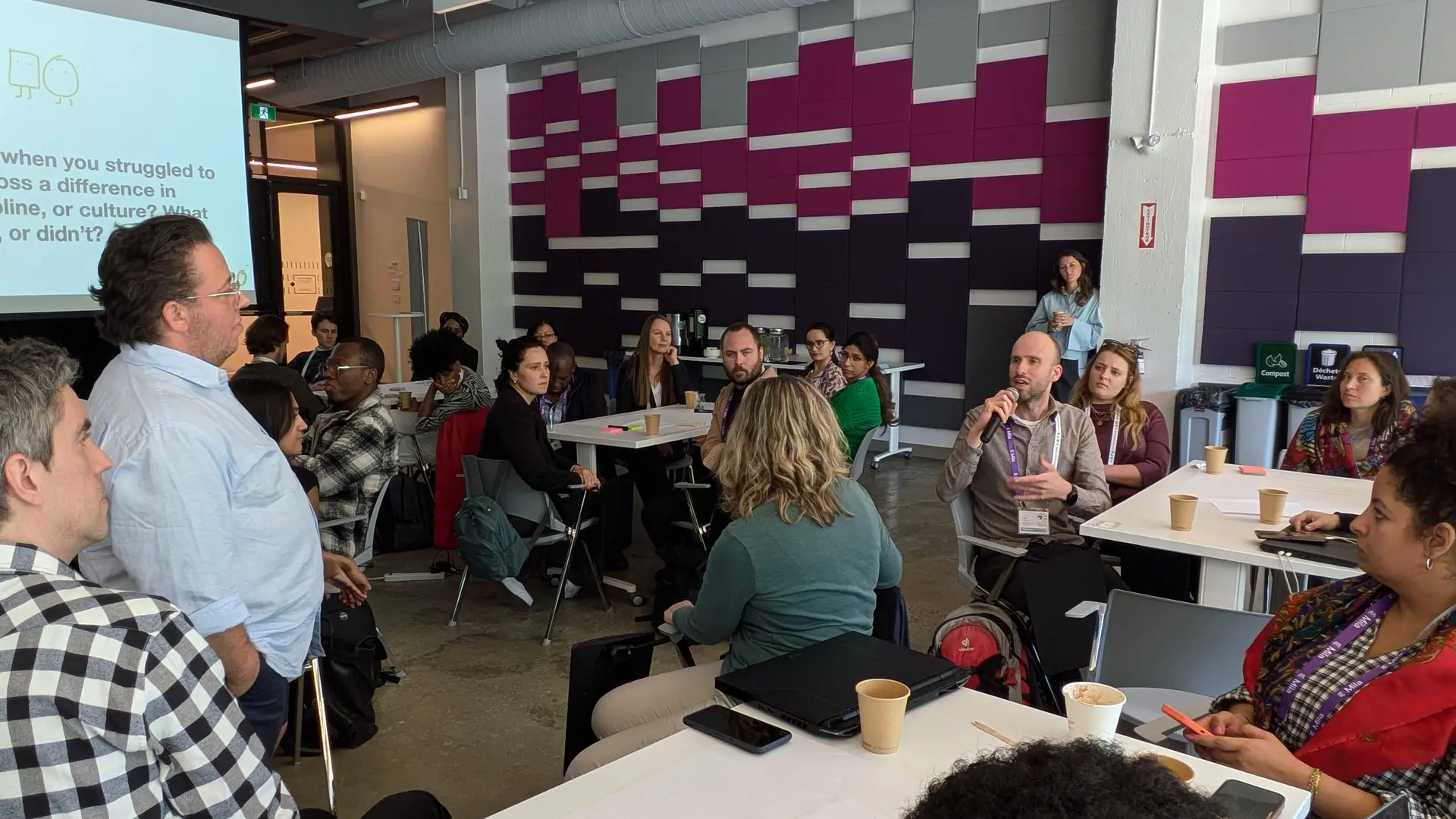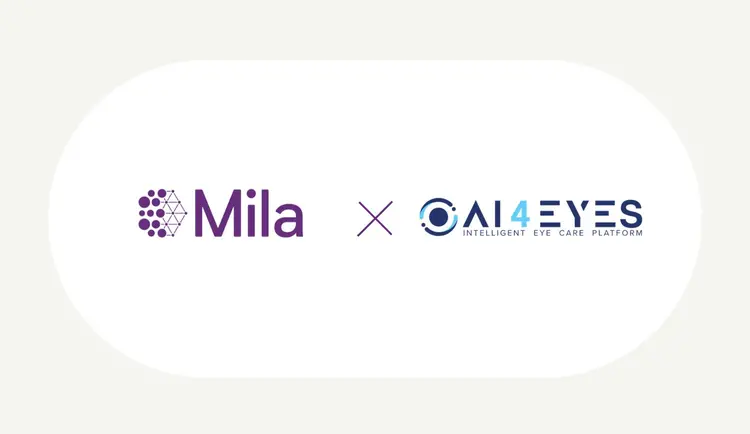
From May 26 to 30, more than 40 participants gathered at Mila for the third edition of the Summer School in Responsible AI and Human Rights, organized by Mila and Université de Montréal. The event once again provided a week of deep reflection, meaningful learning, enriching discussions and strong and long lasting relationships.
“The Summer School offers a one-of-a-kind interdisciplinary training and experience on AI and human rights. Over the years, the ambassadors we’ve trained now form a strong cohort of leaders who support one another and take action across all sectors.” — Catherine Régis, Scientific Director of the Summer School, Law Professor at the Université de Montréal and Associate Academic Member at Mila
Reflecting its core values, the Summer School brought together leading voices from AI, ethics, law, public policy, and beyond to promote a more responsible, human rights-based approach to AI. The speakers were Carolina Aguerre, Yoshua Bengio, Lucca Beli, Julien Besset, Su Lin Blodgett, Khaoula Chehbouni, Lynnsey Chartrand, Vicky Charisi, Fernanda Del Castillo, Virginia Dignum, Jake Effoduh, Prakhar Ganesh, Alex Hernandez-Garcia, Isadora Hellegren Létourneau, Alexandre Le Bouthillier, Orla Lynskey, Jess Matz, Petra Molnar, Samone Nigam, Taylor Owen, Benjamin Prud’homme, Catherine Régis, and Lucia Velasco.
Throughout the week, participants attended a series of talks that deepened their understanding of the core principles of responsible AI and human rights. They gained a well-rounded perspective on topics such as AI by design, mitigation techniques, legal frameworks, and sensitive issues such as AI and migration, children’s rights and freedom of expression.
“The summer school is an excellent opportunity to explore the essential perspectives that must be considered when thinking about the far-reaching impact of AI development. It’s an ambitious but vital step on the path toward a harmonious coexistence between humanity and artificial intelligence.” — Participant from the 2025 edition
Panel discussions allowed participants to explore AI policy in different regions of the world, along with the challenges of AI governance at both local and international levels. The week also featured hands-on workshops focused on collaboration, interdisciplinarity, and science communication, as well as case studies on Indigenous perspectives on AI (presented by CIFAR) and AI in healthcare (led by the Université de Montréal).
This immersive experience didn't just equip participants with new skills and a renewed vision for an ethical, inclusive, and sustainable AI future, it also fostered a truly interdisciplinary and global community of human rights ambassadors. As one participant shared, "I used to feel alone when thinking about Responsible AI, but I met fantastic people sharing this passion... I feel a renewed energy to continue." This program cultivates a powerful sense of collective purpose, empowering individuals to support one another and lead change across their respective fields. For many, it was a pivotal moment in their career, as another attendee noted, "The Mila Summer School is undoubtedly a turning point in your career". Others described it as "life changing." Participants leave not just with knowledge, but with a vibrant network and a renewed sense of hope.
If you're ready to be part of this transformative journey and contribute to meaningful change, stay tuned. More details about the Summer School in Responsible AI and Human Rights 2026 will be announced soon!










